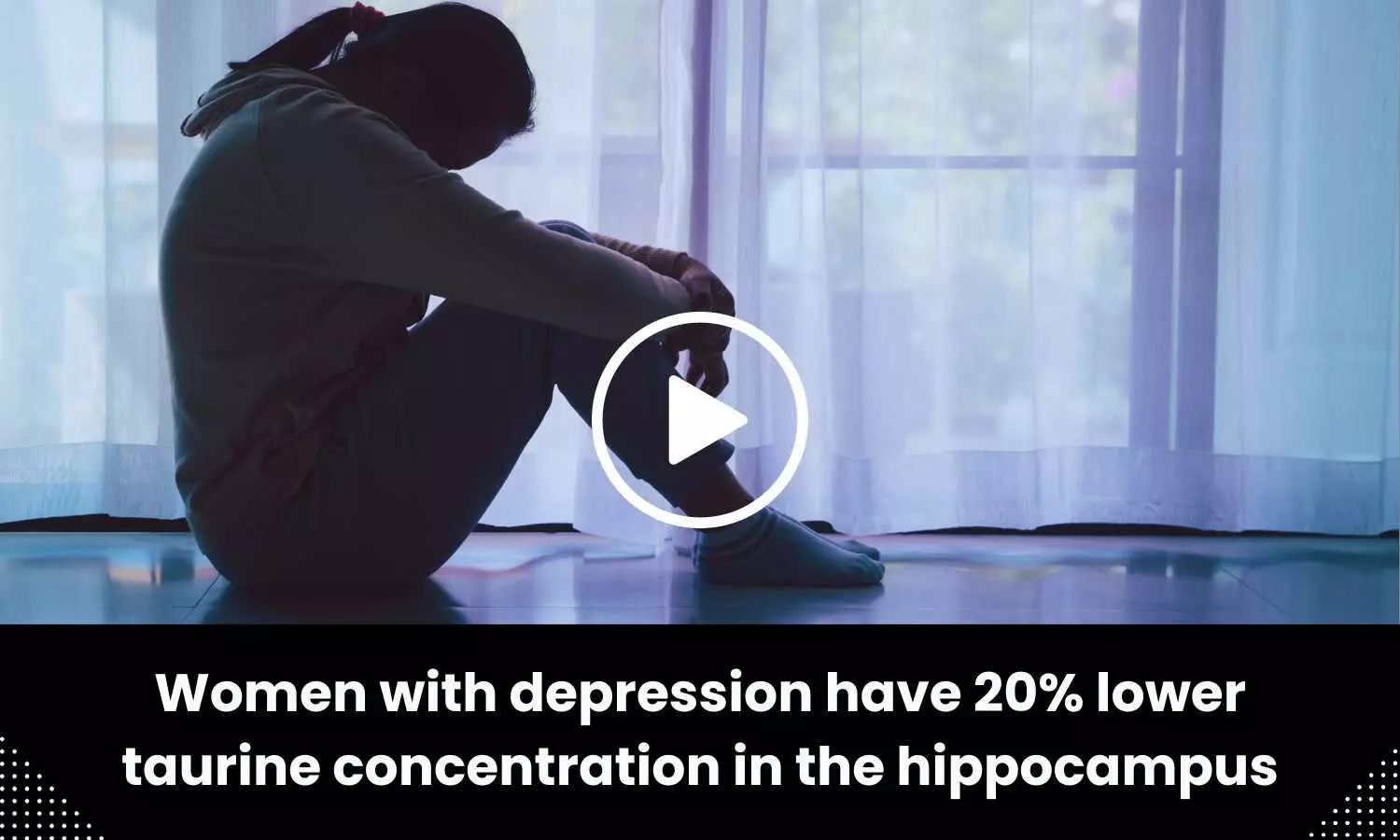- Home
- Medical news & Guidelines
- Anesthesiology
- Cardiology and CTVS
- Critical Care
- Dentistry
- Dermatology
- Diabetes and Endocrinology
- ENT
- Gastroenterology
- Medicine
- Nephrology
- Neurology
- Obstretics-Gynaecology
- Oncology
- Ophthalmology
- Orthopaedics
- Pediatrics-Neonatology
- Psychiatry
- Pulmonology
- Radiology
- Surgery
- Urology
- Laboratory Medicine
- Diet
- Nursing
- Paramedical
- Physiotherapy
- Health news
- AYUSH
- State News
- Andaman and Nicobar Islands
- Andhra Pradesh
- Arunachal Pradesh
- Assam
- Bihar
- Chandigarh
- Chattisgarh
- Dadra and Nagar Haveli
- Daman and Diu
- Delhi
- Goa
- Gujarat
- Haryana
- Himachal Pradesh
- Jammu & Kashmir
- Jharkhand
- Karnataka
- Kerala
- Ladakh
- Lakshadweep
- Madhya Pradesh
- Maharashtra
- Manipur
- Meghalaya
- Mizoram
- Nagaland
- Odisha
- Puducherry
- Punjab
- Rajasthan
- Sikkim
- Tamil Nadu
- Telangana
- Tripura
- Uttar Pradesh
- Uttrakhand
- West Bengal
- Medical Education
- Industry
Women with depression associated with 20% lower taurine concentration in the hippocampus
Overview
For the first time, a research team in Korea has discovered there is a significant relationship between depression and the taurine concentration in the hippocampus, an area of the brain responsible for memory and learning functions. This discovery provides the opportunity to publicize the role and importance of taurine in future prevention, diagnosis, and treatment of depression.
Using ultra-high magnetic field 7T human MRI (7T MRI), researchers (Drs. Youngkyu Song, Jee-Hyun Cho and Chaejoon Cheong) in the Korea Basic Science Institute (KBSI, President Seong-Kwang Yang) Biochemical Analysis Team have confirmed that the taurine concentration was significantly lower in the hippocampus of young females suffering from depression.
The study, conducted in collaboration with research teams led by Dr. Hyungjun Kim at the Korea Institute of Oriental Medicine (KIOM) and Prof. Jin-Hun Sohn at Chungnam National University (CNU), is the result of comparing two groups of female participants, a group of 36 female patients with major depressive disorder, and a control group of 40 healthy females. All participants were aged 19 to 29.
Using 7T MRI, which achieves high signal sensitivity and resolution, and sLASER pulse sequence designed to reduce chemical shift displacement errors, the research team successfully measured the subtle differences in taurine signals in the hippocampus of the patient and control groups.
The concentrations of metabolites were also accurately measured with consideration to the precise distributions of the constituents, white matter, gray matter, and cerebrospinal fluid (CSF) which are dependent on the individual. In the future, it is expected these measurements will be applied to customized brain disease research, tailored to individual characteristics.
Reference: Association between taurine level in the hippocampus and major depressive disorder in young women: a proton magnetic resonance spectroscopy study at 7 tesla; Biological Psychiatry
DOI: 10.1016/j.biopsych.2023.08.025
Speakers
Isra Zaman
B.Sc Life Sciences, M.Sc Biotechnology, B.Ed





